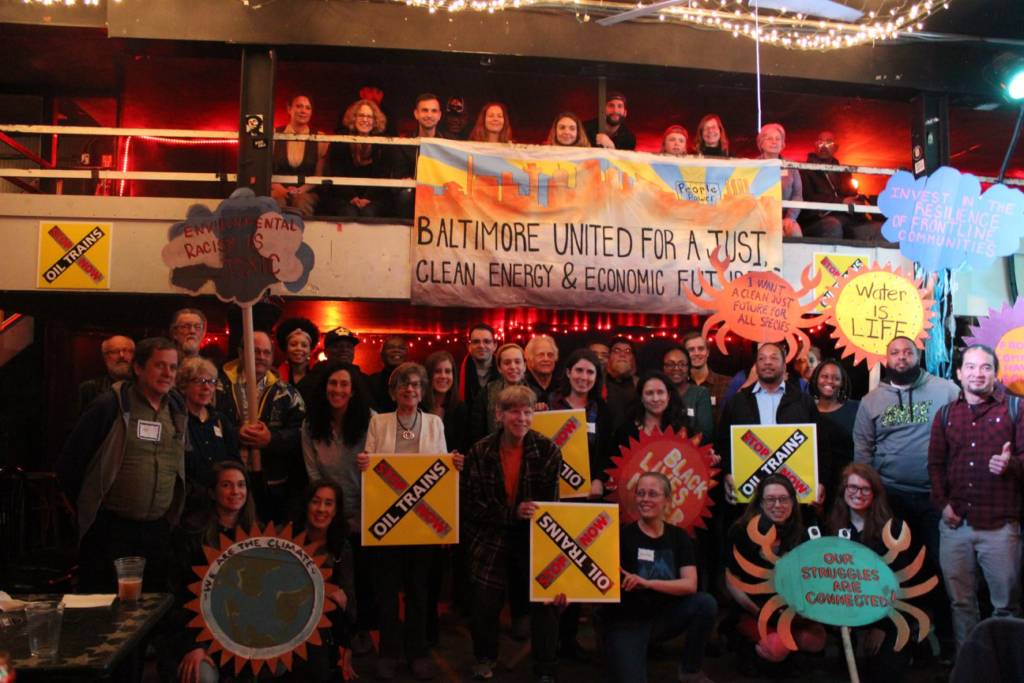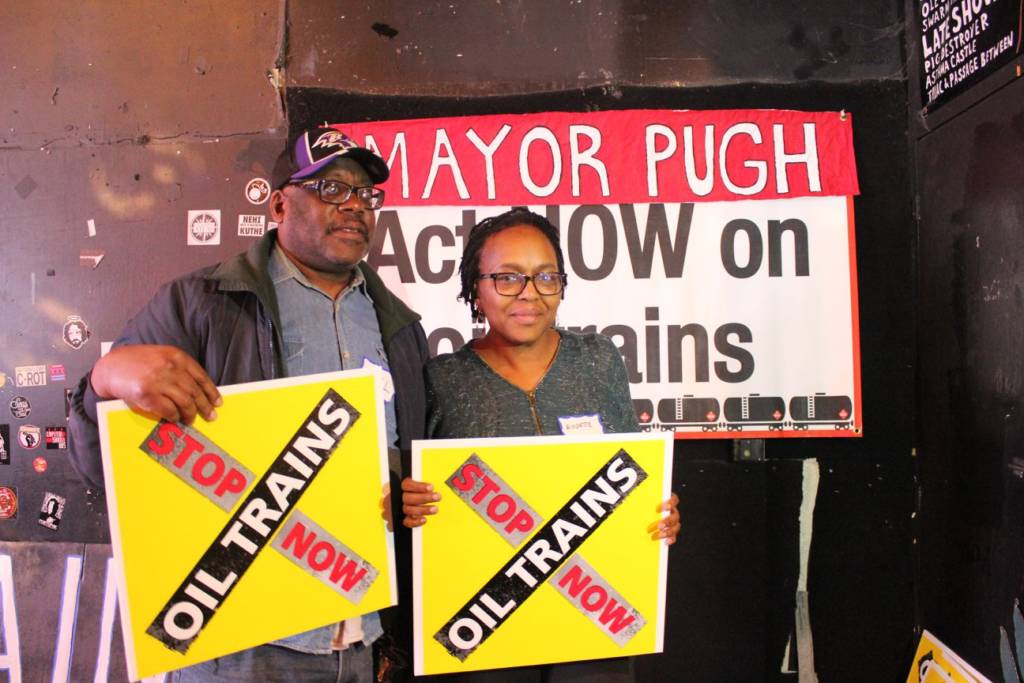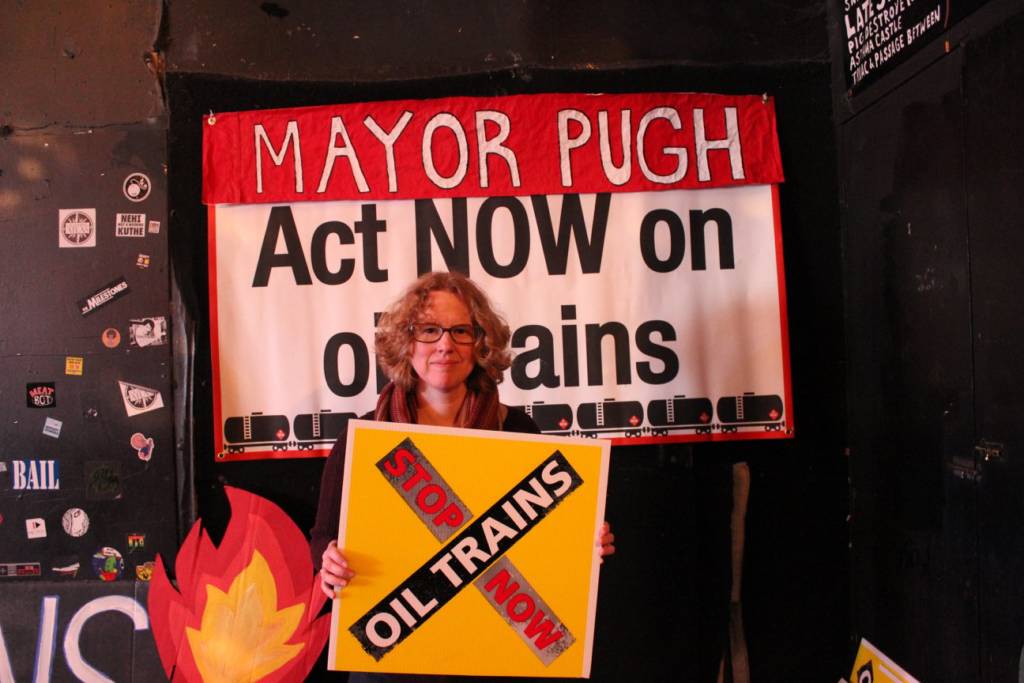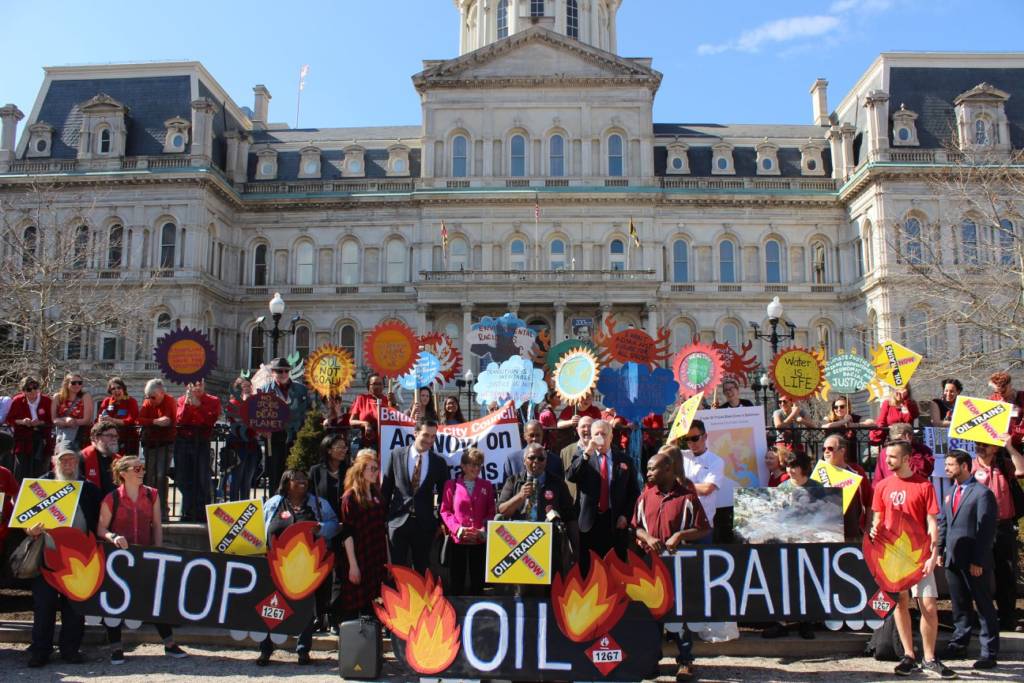In March of this year, after four years of grassroots campaigning, the City of Baltimore passed an ordinance to ban new crude oil terminals, becoming the first city on the Eastern Seaboard to adopt this tactic to stop fossil fuel expansion. With this step, Baltimore is moving closer to becoming a healthier, more equitable, and Fossil Free city.
There are a myriad of lessons to be learned from what the people of Baltimore have achieved. Among them, that local organizing is one of the most effective and immediate ways to improve the lives of people harmed by the dangerous designs of fossil fuel billionaires. Progress is possible in every community, and it starts with getting plugged in to local organizing for a Fossil Free world.
This victory was made possible by the dedicated work of a coalition of community members and environmental, public health, and local groups. People came together fighting for public health and safety, environmental stewardship, and racial justice.
A significant amount of fossil fuels are transported by rail. Trains carrying crude oil often pass through low-income communities and communities of color, exposing local residents to dangerous toxins and putting them at risk of accidents and explosions, including one train crash in Lac-Mégantic, Quebec that killed 47 people in 2013.
“Baltimore’s history of racist housing policy and redlining helped make this possible, and we still see the effects of it today in who is most exposed to environmental hazards.”
“Although crude oil trains travel through all parts of Baltimore… the places most likely to experience a derailment – because of dangerous at-grade crossings, lack of investment in infrastructure, and a history of derailments – are neighborhoods whose residents are predominantly Black and don’t receive the same attention and investment that whiter and wealthier neighborhoods in Baltimore receive,” said Jennifer Kunze, an organizer with Clean Water Action. “Baltimore’s history of racist housing policy and redlining helped make this possible, and we still see the effects of it today in who is most exposed to environmental hazards.”
Rodette Jones, a community leader in Baltimore’s Curtis Bay neighborhood, was drawn to the fight for this ban to prevent more dangerous and dirty projects from being built in her community. “They think they can just dump these things in our neighborhood and we won’t have anything to say about it,” she said.
For Chauna Brocht, a local parent who “never thought [she’d] be working on rail safety,” the realization that her home and children’s schools were in the blast zone spurred her to take action. 165,000 Baltimore residents live within a few yards of the rail tracks, and some 30,000 Baltimore children attend schools in the blast zone of a potential crude oil explosion.
The coalition was originally formed in response to a city proposal to build a new crude oil terminal in 2014. After defeating that proposal, the group introduced a bill to conduct a study of the impact of the crude oil trains, which the Baltimore City Council rejected.
Figuring out what to do next, local organizers found themselves inspired by the fossil fuel terminal bans 350PDX had recently passed in the Pacific Northwest. “We were trying to figure out what to do next, and then the precedents for banning crude oil terminals were set in Portland, OR and Vancouver, WA,” explained Taylor Smith-Hams, a community organizer with Chesapeake Climate Action Network. “We were very inspired by the work on the West Coast. We saw it as a way to have more of a tangible impact and prevent us from continuing to play whack-a-mole fighting off individual proposals. So instead of coming back with something weaker after the study bill failed, we came back with something stronger. And we won.”
“Instead of coming back with something weaker after the study bill failed, we came back with something stronger. And we won.”
Keisha Allen, president of the Westport Neighborhood Association, saw that what was accomplished in Baltimore could serve as an example for more cities. “Hold your elected officials accountable,” she said. “They’re supposed to represent you, not the interests of business. Don’t be afraid of a no. Be persistent. Don’t be afraid to use the media if you have to.”
This was echoed by Jennifer Kunze, who noted Baltimore’s zoning code strategy could prevent future crude oil terminal proposals being imitated by cities around the US.
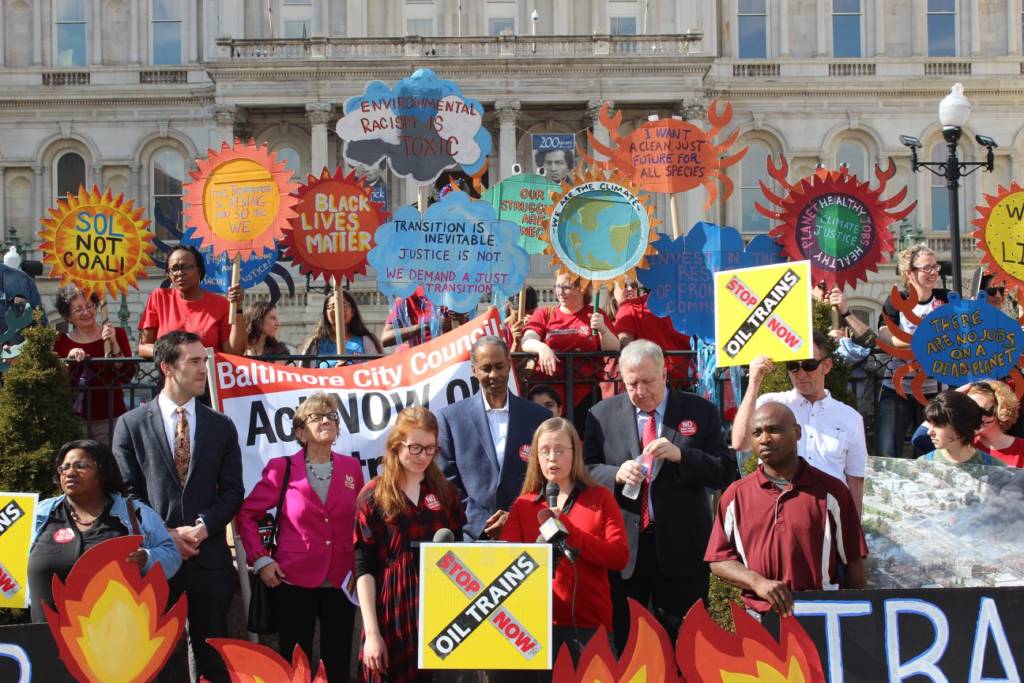
Pictured: Keisha Allen (far left), Taylor Smith-Hams (center left), Jennifer Kunze (center right) Photo courtesy of Chesapeake Climate Action Networka
Organizers and community leaders committed to this fight for the long haul pointed out the value of engaging in a multi-year campaign. This allowed the coalition time to dig deep, develop an effective strategy, and perhaps most importantly, build relationships across the community.
The broadness of the coalition proved to be one of its greatest strengths. “Our councilmembers told us later that one thing that moved them was the amount of written letters and testimony they got from people from all walks of life–engineers, doctors, community associations. That wide range of perspectives and persistence on our part played a big role in getting this ban passed almost unanimously,” Taylor said.
“I’d like to see the city invest in nice things for this community and do away with the industrial stuff. Without displacing us.”
Despite celebrating this victory, organizers recognize the fight is far from over. The crude oil terminal ban will stop future terminals from being built, which will allow members of the coalition to focus attention elsewhere.
Keisha Allen hopes the crude oil terminal victory will pave the way for more equitable city development: “I’d like to see the city invest in nice things for this community and do away with the industrial stuff. Without displacing us.”
Rodette Jones also hopes this victory can translate into improvements to the city that won’t result in gentrification, such as the removal of a coal terminal in her neighborhood of Curtis Bay. To help expand community control of land, she’s working on developing a Community Land Trust for Curtis Bay, where many homes are owned by outside investors who leave their real estate vacant. Overall, Rodette wants to see improvements in the health of her community: “We need better air quality. No more asthma, respiratory problems or cancer.”
“We need better air quality. No more asthma, respiratory problems or cancer.”
Organizers hope this will cause fossil fuel interests to wane, making way for the rise of wind and renewable energy. Two offshore wind farms have been proposed off the coast of Maryland with plans for turbine manufacturing in the Baltimore region. Chauna Brocht sees wind as key to creating a healthier city.
Taylor agrees: ”I hope in 10 years these two offshore wind farms have been built and their manufacturing well established in the Baltimore region. I hope we can get our energy from them and other renewable sources while moving towards a zero-waste future and ending our reliance on incinerators for waste management. I hope control of land and energy generation become more democratized in a way that’s equitable and ensures the communities that’ve been most impacted by the fossil fuel industry are benefiting the most and leading the transition to a more just and sustainable future.“
Baltimore still has a way to go on the road to Fossil Free, but with each victory, the hope for a more just and healthier city grows. The broad coalition that organizers and community leaders have built stands as an example of the power of local organizing to cities across the nation. When the people are united behind a creative agenda that centers the needs of low-income communities of color most impacted by fossil fuel billionaires, change becomes more than a word; it becomes a reality.
